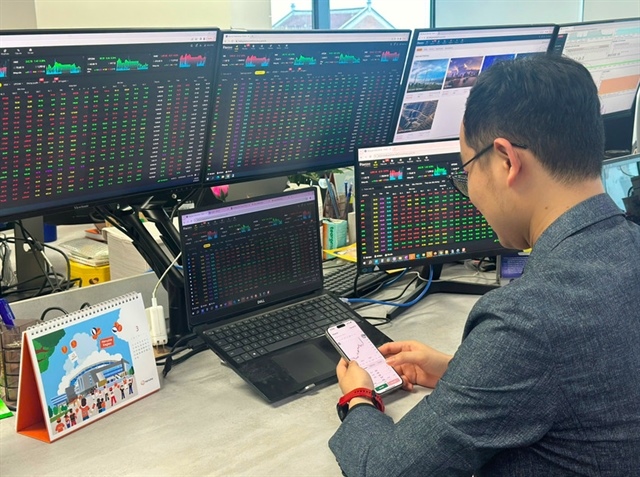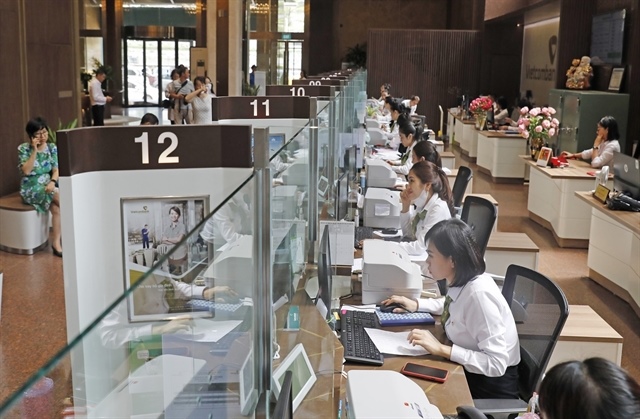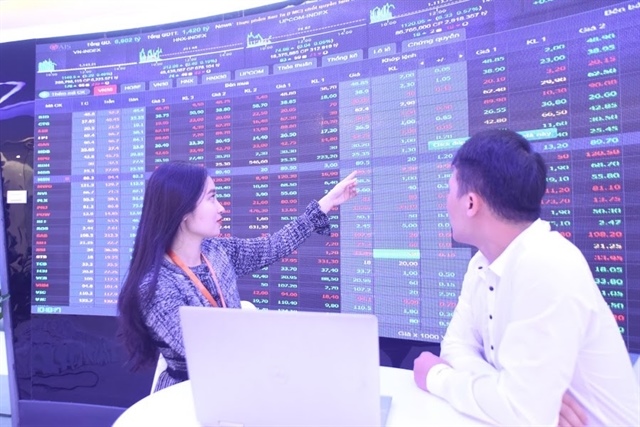Frontier funds buying Vietnam as growth revives: Southeast Asia
Frontier funds buying Vietnam as growth revives: Southeast Asia
Frontier-market equity funds from Sweden to South Africa are pouring money into Vietnamese stocks, lured by Southeast Asia’s cheapestvaluations and an improving outlook for economic growth.

Overseas money managers bought a net $277.1 million of the country’s shares this year through yesterday, 5.3 percent more than the whole of 2013. That’s helped propel a 20 percent gain in the benchmark VN Index (VNINDEX) of Ho Chi Minh City Stock Exchange.
Coeli Asset Management, RenAsset Management and Asia Frontier Capital Ltd. say the rally isn’t done as economic growth accelerates, inflation eases and the outlook for exports improves after the central bank devalued the dong for the first time in 12 months. Moody’s Investors Service raised the nation’s sovereign rating on July 29, citing an improving balance of payments and rising foreign-exchange reserves.
“We are adding to existing positions in Vietnam,” Thomas Hugger, chief executive officer at Hong Kong-based Asia Frontier Capital, wrote in an e-mail. “Even though it has been among the leading performers in Asia this year, we still think many stocks offer value.”
James Bannan, who runs the $110 million Frontier Markets Fund at Coeli in Sweden, said he is “very positive” on Vietnam. Sven Richter, head of frontier markets at the RenAsset Management, which has offices in Johannesburg, Guernsey and London, is “still finding attractive stocks” to buy.
Dong Devalued
The VN Index advanced 1.5 percent yesterday to 607.73, the highest close since Oct. 26, 2009. The gauge is valued at about 13 times projected 12-month earnings, the least among the six major Southeast Asian markets.
Still, concerns remain that soured loans in the country’s banking sector may curb growth. Increasing bad debts could significantly undermine the resilience of Vietnam’s lenders, Standard & Poor’s wrote in a report July 15. The country’s actual non-performing loans may be substantially higher than reported because of a lack of consistent classifications and reporting standards for banks, it said.
Non-performing loans by commercial lenders amounted to 4.84 percent of total loans as of the end of June, Thoi Bao Kinh Te Vietnam newspaper reported July 21. That compares with a central bank estimate of 7.8 percent at the end of last year. Moody’s estimated in February bad debt at Vietnamese banks amount to at least 15 percent of total assets.
Economic Bottleneck
“Non-performing loans in the Vietnamese banking system are still at a rather high level and this issue needs to be resolutely tackled,” Hoang Viet Phuong, senior director of Institutional Research & Investment Advisory at Saigon Securities, Vietnam’s biggest brokerage, said by phone from Hanoi yesterday. “This has been a bottleneck in the economy and when it’s resolved then Vietnam will see more sustainable and healthier growth.”
The economy is still expanding, with growth quickening to 5.25 percent in the second quarter, from 5.09 percent three months earlier, as the outlook for exports (VEEXTYOY) improved. The central bank devalued the dong in June to spur shipments after anti-China protests in May halted production at foreign-owned factories.
Inflation held at less than 5 percent for a sixth straight month in July, compared with a peak of more than 28 percent in August 2008. Exports rose 14.9 percent from a year earlier in the first six months of this year, while the first-half trade surplus of $1.3 billion compares with a $1.4 billion deficit in the same period a year earlier.
“It’s a classic early-stage emerging market with a lot of potential,” Bannan said. “There are a few very interesting opportunities in the Vietnamese market and we are currently adding to them.”
Samsung’s Investment
The potential for growth in Vietnam, where 60 percent of its 90 million population are of working age, is attracting manufacturers.
Disbursed foreign direct investment in Vietnam in the first seven months of the year was estimated at $6.8 billion, 2.3 percent more than the same period a year earlier, the Ministry of Planning and Investment said in a statement last month. Samsung Electronics Co. (005930), the world’s biggest smartphone maker, last month received approval from the provincial government of Bac Ninh to build a $1 billion module-assembly plant.
“The country is becoming an important center of manufacturing in the region as it offers lower wages than China and has a large, young and educated working-age population,” Hugger said.
bloomberg

























